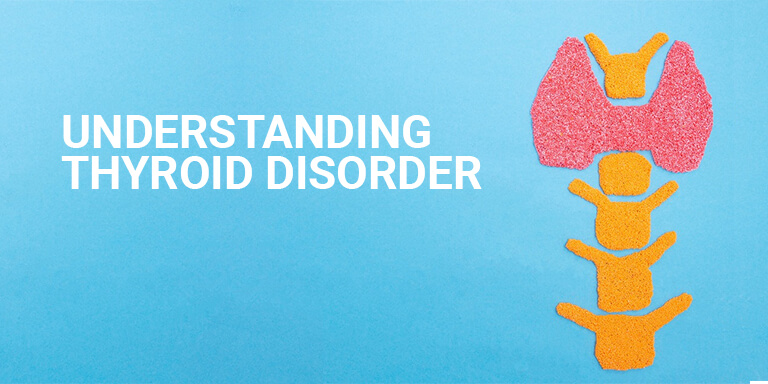The thyroid is a small, butterfly-shaped gland present at the front of the neck. It releases hormones to help your body regulate and use energy for various internal processes. Thyroid is therefore responsible for providing energy to nearly every organ in the body. It controls functions such as how your heart beats or how your digestive system works. Without the right amount of thyroid hormones, your body’s natural functions begin to misbehave which leads to health issues.
Hypothyroidism – scarcity of thyroid hormones
Hypothyroidism is a common condition where the thyroid gland doesn’t create and release enough thyroid hormone into the bloodstream. This makes your metabolism slow down. Also called under-active thyroid, hypothyroidism can make you feel tired, gain weight and be unable to tolerate cold temperatures.
Hyperthyroidism – excess of thyroid hormones
Hyperthyroidism, also called overactive thyroid, is a condition where the thyroid gland releases high levels of thyroid hormone into the body. This condition can make your metabolism speed up. Symptoms of hyperthyroidism include a rapid heartbeat, weight loss, increased appetite and anxiety.
Hypothyroidism – Common symptoms
The symptoms of hypothyroidism usually develop slowly over time, and sometimes years. They can include:
- Feeling tired all the time
- Experiencing numbness and tingling in your hands
- Constipation
- Weightgain
- Having higher than normal blood cholesterol levels
- Feeling depressed
- Being unable to tolerate cold temperatures
- Having dryor coarse skin and hair
- Having frequent and heavy menstrual periods
- and Feeling more forgetful (also called brain fog)
Hyperthyroidism – Common symptoms
Just like hypothyroidism, there are many symptoms of hyperthyroidism and they can impact your entire body. You may experience some of these symptoms if not all. Symptoms of hyperthyroidism can include
- Rapid heartbeat(or palpitations)
- Feeling shakyor nervous
- Weight loss
- Increased appetite
- Diarrheaand more frequent bowel movements
- Menstrual changes
- Intolerance to heat and excessive sweating
- Sleep issues
- Swelling and enlargement of the neck from dueenlarged thyroid gland (called goiter)
- Hair loss and brittlehair
- and Muscle weakness
Which condition is more prevalent?
Hypothyroidism is more common than Hyperthyroidism and one of the most common ways in which it affects health is by causing weight gain which can further lead to other health complications such as diabetes, PCOS, obesity and many others.
Both Hypothyroidism and Hyperthyroidism can be effectively controlled so it is always advised that you keep a check on your health and get yourself tested if you come across any or more or these symptoms.

